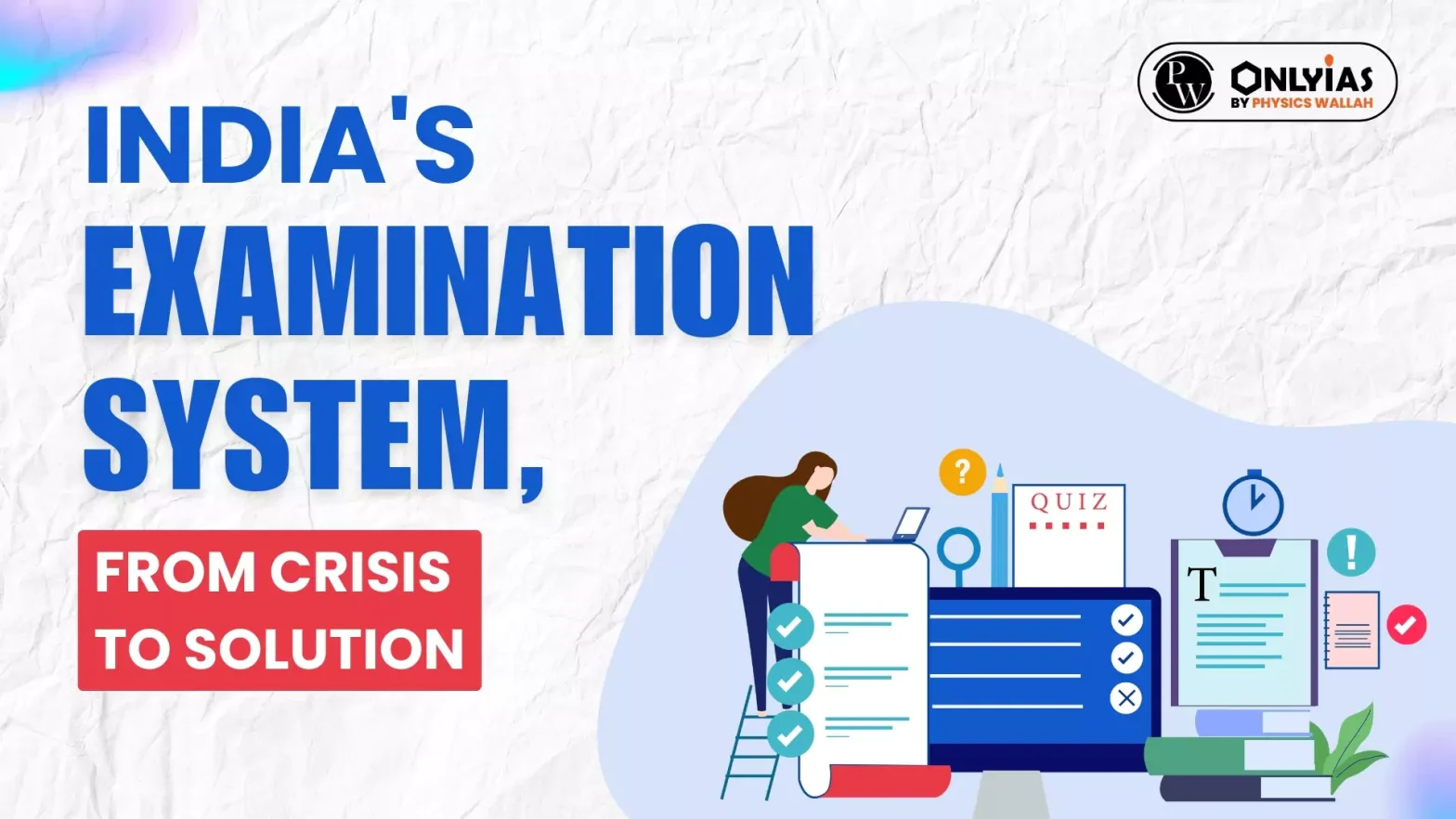India’s examination system plays a crucial role in shaping the future of millions of students. This presentation explores the current challenges facing the system and potential solutions to create a fair, secure, and effective assessment process for all.
The Importance of Exams: Why Are Exams So Crucial?
- Social Mobility: Exams serve as a vehicle for social mobility, allowing students from all backgrounds to compete on equal footing.
- Equality Promise: The examination system promises equality of opportunity, regardless of socio-economic status.
- Coaching Industry: The importance of exams has led to a boom in the coaching industry, further emphasizing their perceived value.
Enroll now for UPSC Online Course
Exams: Ladder to Dreams or Crisis of Trust?
- Massive Scale: 12.3 million students participated in NTA exams in 2023, highlighting the enormous reach and impact of India’s examination system.
- Integrity Challenges: Recent paper leaks in high-stakes exams like NEET and UGC NET have shaken public trust in the the system.
- High Stakes: With millions of futures at stake, the integrity and fairness of exams are more critical than ever.
Depth of the Crisis: How Deep Does the Crisis Go?
- Multi-State Paper Leak Racket: The discovery of a widespread paper leak racket spanning multiple states has revealed the extent of the problem.
- CBI Investigation: The involvement of the Central Bureau of Investigation underscores the seriousness of the exam integrity crisis.
- Psychological Impact: The ongoing scandals have a significant psychological impact on students, adding stress and uncertainty to an already pressure-filled process.
Government Response: What Steps Has the Government Taken?
- Leadership Change: The government has implemented leadership changes in the National Testing Agency (NTA) to address systemic issues.
- Expert Committees: High-level expert committees have been formed to analyze the problems and propose solutions.
- Public Examination Act: The introduction of a Public Examination Act aims to provide a a legal framework for exam integrity.
Check Out UPSC NCERT Textbooks From PW Store
Tackling with Technology: The New Avatar of Exam Security
- Blockchain for Paper Tracking: Implementing blockchain technology to securely track and manage exam papers throughout the process.
- Biometric Verification: Introducing biometric verification systems to ensure the identity of exam takers and prevent impersonation.
- Al-Powered Proctoring: Utilizing artificial intelligence for enhanced proctoring and cheating detection during exams.
Need for Reforms: Not Just Tech, System-Wide Changes Needed
- Improving Education Quality: Enhancing the overall quality of education to better prepare students for exams and future careers.
- Creating Job Opportunities: Aligning the examination system with real-world job opportunities to make the process more meaningful.
- Holistic Assessment Approach: Developing a more comprehensive assessment approach that goes beyond traditional testing methods.
Building a Culture of Integrity: How to Foster a Culture of Honesty?
| Initiative |
Description |
| Integrity Workshops |
Conducting workshops to promote ethical behavior and behavior and academic integrity. |
| Community Involvement |
Engaging the wider community in efforts to maintain maintain exam integrity. |
| Ethical Education |
Incorporating ethics and integrity into the curriculum at curriculum at all levels. |
Conclusion
Exams are crucial for social mobility and opportunity but face integrity challenges. Government reforms and technology aim to restore trust and improve the education system.
Enroll now for UPSC Online Classes
![]() 27 Jun 2024
27 Jun 2024

